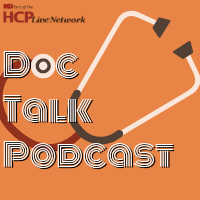Video
Schizophrenia: Relapse Prevention and Adverse Effects
Transcript: Dawn Velligan, PhD: Relapse can be diagnosed in a number of ways. It’s important to catch it early and determine early signs of relapse. Sometimes people will define relapse as, they went back to the hospital. Or their psychotic symptoms became significantly worse. If people’s voices become louder, more distracting and frequent, they have more difficulty ignoring them and start to act on their delusions. There are signs that definitely suggest that people are in the midst of a relapse. But again, you want to catch that early. You want to know if people aren’t sleeping. You want to know if people are undergoing extra psychosocial stressors in their lives, if something negative is happening in their lives. And if they’re under a lot of stress, you want to know about that because you could prevent it with psychosocial support so it doesn’t go all the way to a relapse.
It’s important to discuss relapse with patients and family members when they’re able to be with you because everybody needs to know what to look for. Typically, I talk to people, especially recent onset cases. People don’t understand the illness. They’ve been given an antipsychotic medication, and everything got better quickly. They’re clear of their psychosis, and they want to forget that that ever happened to them, that it’s never going to happen again.
They don’t want to hear about it. It’s important for them to know what to look for. To prevent relapse, they’re going to need to stay on medication for an extended period of time. They really don’t like to hear that, so it’s important to have a good relationship and talk about shared decision-making.
They need to be prepared in case this is 1 of those times where this is going to be a recurring illness. The key to this illness is to stop relapses. We need them to recognize when they feel uncomfortable and they start to think that people at work are talking about them. At those first signs, we need to talk about that, and we need to do something that will help, whether it’s medication related or working in a cognitive behavioral treatment to get them to look at those thoughts and see what’s real and what’s not.
Where is there evidence? Where is there not evidence so that they can prevent themselves from going back to the hospital or the ER [emergency department]? [We need to catch] signs early and not have those experiences that cause them to lose their job or drop out of school.
John M. Kane, MD: There certainly is a concern. There are many reasons why we want to prevent relapse. There are many psychosocial and vocational reasons and health economic reasons, but there is also a concern that relapse may contribute to changes in brain morphology. We know that for patients with schizophrenia, when they’re followed longitudinally, we do see changes in structural MRI [magnetic resonance imaging] with progressive brain-tissue loss after the onset of the illness. The feeling is that recurrent relapses can play a role in that. It may not be the only role, or the only factor contributing to that, but the concern is that it is 1 factor. It underscores the importance of trying to reduce the risk of relapse.
Christoph Correll, MD: Relapses are a problematic life event, and on many different levels, for people with schizophrenia. A relapse means that patients are taken out of their usual environments, they are insecure about reality and whether they can trust people, and often relapse leads to disruption of interpersonal relationships, sometimes problems with the law, but also hospitalizations. Hospitalizations can be quite traumatic for patients, particularly when they’re admitted against their will and where initially, some treatments are also given against their will.
Quality of life has to do with being able to do things you want to do and being able to enjoy yourself. When you’re having recurrence of psychosis, when you’re in a treatment setting that is very restrictive, surely quality of life suffers. But quality of life is determined by not only psychosocial context, being able to do something meaningful with your life, and adequate self-care but also how you feel about yourself. And a relapse can highly undermine self-worth and lead to self-stigma and also be the beginning of a downward spiral of chronicity and hopelessness in patients who start seeing themselves as being chronically ill and being basically victims of the illness.
In this context, multiple relapses erode both the psychosocial fabric and any economic opportunities that patients have. We know that the recovery in people with schizophrenia is still far too little achieved. Only 13.5% of people with schizophrenia in 1 big meta-analysis were shown to achieve recovery, which means adequate self-care and psychosocial context but also doing something meaningful, including education or work, even work that is voluntary.
The problem with relapses is that people are taken out of their work or educational environments. That with each relapse, a subgroup of patients becomes treatment refractory. One in 6 to 1 in 7 patients will not respond as well anymore, will not be able to return to a meaningful psychosocial and economic situation, and also their contact with the educational and vocational system is disrupted. Finally, relapses can also reduce the gray matter in the brain, thereby making less brain available the cognitive and psychosocial and vocational rehabilitation.
Transcript Edited for Clarity





